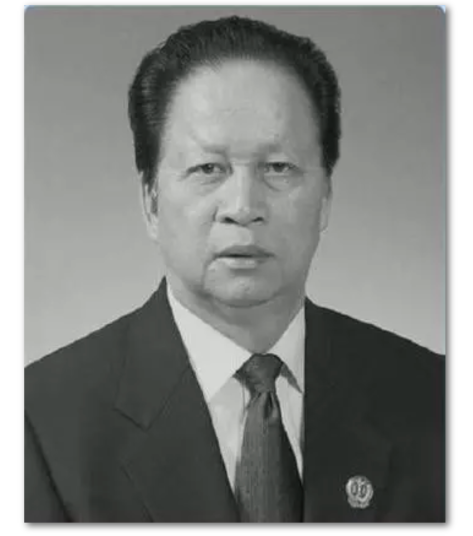
Former President of the Supreme People’s Court (SPC) (and former Minister of Justice) Xiao Yang passed away on 19 April 2019). His funeral was held on 22 Apri. State leaders, including Xi Jinping attended. From the photos and reports I have seen, large numbers of legal professionals attended (one report was of over 1000 attendees), including several hundred from the SPC.
I’ve seen tributes to him in articles published in Chinese social media, personal tributes by many who worked at the SPC during his term in office and a poem composed in his honor. I list below some of the articles in Chinese social media:
- 肖扬今晨去世:此情可待成追忆,一蓑风雨任改革
- 肖扬眼中的法治中国梦想
- 肖扬:人大法律人的家国情怀 (In this article, Xiao recalls that because his primary school teacher was hatted as a rightist, he was under suspicion and unable to join the Party until several years after graduating from Renmin University)
- 肖扬大法官:法律是一种威望
- 缅怀 · 致敬:政法战线的杰出领导人肖扬
- 肖扬:一蓑风雨任改
- 永远的肖扬校友
- 缅怀| 肖扬谈法院、法官与司法改革
- 长歌唱罢风入松:肖扬院长
- 肖扬同志遗体在京火化 习近平李克强栗战书汪洋王沪宁赵乐际韩正王岐山等到八宝山革命公墓送别
- 肖扬同志生平
I’d like to focus one small aspect of his work that likely won’t be considered important enough to be included in his obituaries in either the Chinese or foreign media–his vision, as SPC president, that internationalizing the education of Chinese judges would be beneficial to China. It was done because he was able to take the view at that time that learning about foreign law was beneficial:
In rule of law construction, it is not possible to close the door; copying and blindly transferring [what is done abroad] is not possible: therefore, as for foreign legal civilization, we must creatively absorb the content that conforms to the general principles of the rule of law according to our situation. In fact, a considerable part of our rule of law construction achievements in the past 40 years have been achieved on the basis of absorbing foreign advanced experience. When we formulated the General Principles of Civil Law, the Contract Law, the Property Law, and even the General Principles of Civil Law, we absorbed a lot of advanced concepts and systems from the civil law system and even the Anglo-American legal system. The principle of crime established in the Criminal Law of 1997 is also modern, contains commonalities with the modern rule of law.搞法治建设,关起门来不行,照搬照抄也不行;因此,对外国法律文明,我们要根据自身情况创造性地吸收借鉴那些符合法治一般规律的内容。事实上,四十年来我们的法治建设成就,有相当一部分是在吸收借鉴外国先进经验的基础上取得的。我们制定民法通则、合同法、物权法乃至民法总则时,就大量吸收了大陆法系甚至是英美法系的先进理念和制度;我们在1997年《刑法》中确立的罪刑法定原则,也正是现代法治中共通性的内容。[please feel free to make corrections to this translation]
He considered sending judges abroad an accomplishment that should be included in reports to the NPC:
- More than 200 outstanding young and middle-aged judges have been selected from the national courts to study abroad and in the Hong Kong Special Administrative Region. More than 100 people have returned from their studies and become the backbone of foreign-related trial operations. (从全国法院选送200多名优秀中青年法官到国外和香港特别行政区进修深造,目前已有百余人学成归来,并成为涉外审判业务骨干.)(2002)
- Continue to organize judges to study and exchange in the Hong Kong Special Administrative Region, the Macao Special Administrative Region, and abroad.(继续组织法官到香港特别行政区、澳门特别行政区以及国外学习交流。)
It is hard to calculate the number of judges at either the SPC or from the lower courts who studied abroad in degree or long-term training programs when Xiao Yang was SPC president. They do include the CICC judges:
- Gao Xiaoli:
- Xi Xiangyang;
- Song Jianli;
- Ding Guangyu;
- Shen Hongyu.
But the number of SPC judges who studied abroad during the Xiao Yang era is not limited to that handful and all who remain at the SPC are considered “backbone cadres” (骨干) (core staff).
Another group of now senior SPC and lower court judges are graduates of LLM programs that are cooperative arrangements between Chinese and foreign universities, such as that between Temple University and Tsinghua. On the Temple University program, in 2002 former Dean Reinstein testified:
We were originally approached in 1995 by the Ministry of Justice and a
national law school, the China University of Political Science
and Law. They wanted us to consider starting a Masters of Law
Program in Beijing for Chinese lawyers to learn about American
and international law along the lines of a program that we had
already developed in Japan. They said they needed this because
with the development of a market economy in China, they
understood the need to develop a legal system. The route they
wanted to take in developing a legal system was to educate a
core of very highly trained lawyers and government officials
who would learn about the American legal system and
international law and other Western legal systems and adopt
what they thought was appropriate, from that education, and use
that to develop their legal system.
When we started to develop the program, we began to receive
requests from the Supreme People’s Court, and a number of
government ministries to send students. We did start our first
class in 1999 with 35 students, that class included 8 judges
who had been sent by the Supreme Judicial Court, they had
actually nominated 18, we only had scholarship funding for 8.
Many of the ongoing exchange or training programs involving the Chinese judiciary and educational institutions abroad date from the Xiao Yang era, such as the degree programs between the National Judges College and the City University of Hong Kong and the National Judges College and the University of Montreal and it is understood that few students in the Tsinghua/Temple University program are now from the judiciary.

 I have spent some time decoding Supreme People’s Court (SPC) President Zhou Qiang’s
I have spent some time decoding Supreme People’s Court (SPC) President Zhou Qiang’s 

You must be logged in to post a comment.